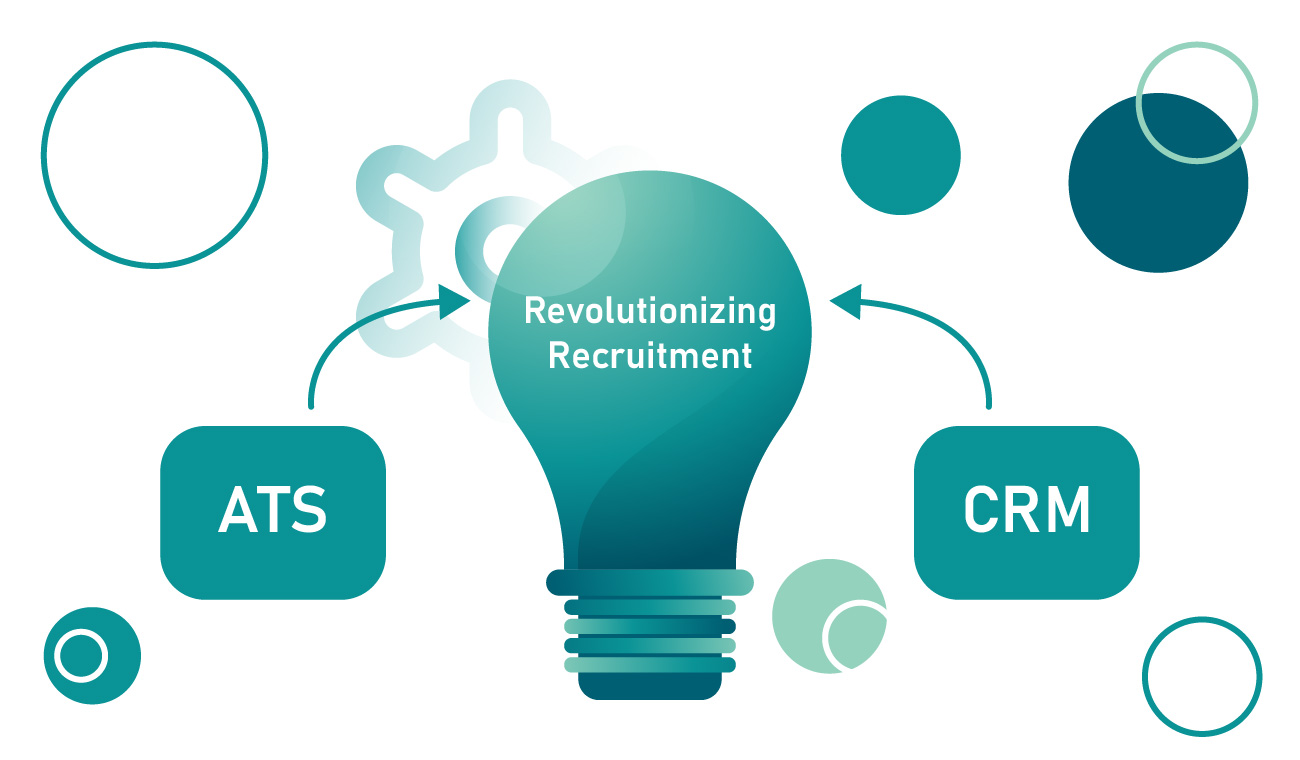
The Imperative Role of CRM and ATS in Revolutionizing the Recruitment Sector
In the rapidly evolving landscape of talent acquisition, the utilization of advanced tools like Customer Relationship Management (CRM) and Applicant Tracking Systems (ATS) has become pivotal for organizations aiming to stay competitive and efficient in the recruitment sector. Here’s a brief note on the importance of CRM and ATS in shaping the future of recruitment:
1. Streamlining Workflows and Enhancing Efficiency:
– Efficient Candidate Management: CRM systems facilitate streamlined candidate management, enabling recruiters to easily track and engage with potential hires. This efficiency translates to quicker response times and a more agile recruitment process.
– Automated Processes: ATS solutions automate administrative tasks associated with applicant tracking, from resume parsing to interview scheduling. This not only saves time but also reduces the likelihood of errors, ensuring accuracy in the selection process.
2. Building Long-Term Relationships with Candidates:
– Candidate Relationship Management: CRM tools are designed to foster meaningful and long-lasting relationships with candidates. By maintaining a centralized database of candidate interactions, recruiters can personalize communication, leading to enhanced candidate experience and loyalty over time.
– Nurturing Talent Pools: CRM allows organizations to proactively build and nurture talent pools, cultivating relationships with potential candidates even when there are no immediate job openings. This proactive approach pays dividends when suitable opportunities arise.
3. Data-Driven Decision-Making and Predictive Analytics:
– Informed Decision-Making: Both CRM and ATS provide valuable insights into recruitment processes through analytics and reporting features. This data-driven approach allows organizations to make informed decisions, identify bottlenecks, and continuously optimize their hiring strategies.
– Predictive Analytics: Advanced CRM and ATS solutions leverage predictive analytics to forecast future hiring needs, enabling organizations to plan strategically and stay ahead of talent demands.
4. Ensuring Compliance and Mitigating Bias:
– Compliance Management: In an era of evolving employment laws and regulations, CRM and ATS systems play a crucial role in ensuring compliance with legal standards. This not only reduces the risk of legal issues but also fosters a transparent and fair recruitment process.
– Mitigating Bias: By automating parts of the recruitment process, ATS systems help mitigate unconscious biases, ensuring fair and equitable candidate evaluations based on merit rather than subjective factors.
5. Adapting to Technological Advancements:
– Integration Capabilities: CRM and ATS solutions are designed to seamlessly integrate with other HR technologies and platforms. This adaptability allows organizations to stay current with technological trends and ensures a cohesive, interconnected recruitment ecosystem.
– AI and Machine Learning Integration: The incorporation of artificial intelligence and machine learning in CRM and ATS systems brings predictive capabilities, automates repetitive tasks, and enhances the overall efficiency and effectiveness of the recruitment process. In conclusion, the integration of CRM and ATS in the recruitment sector is not just a technological upgrade; it’s a strategic imperative for organizations looking to attract, engage, and secure top talent in a competitive market. These tools empower recruiters to be more efficient, strategic, and human-centric in their approach, laying the foundation for a successful and sustainable talent acquisition strategy.



